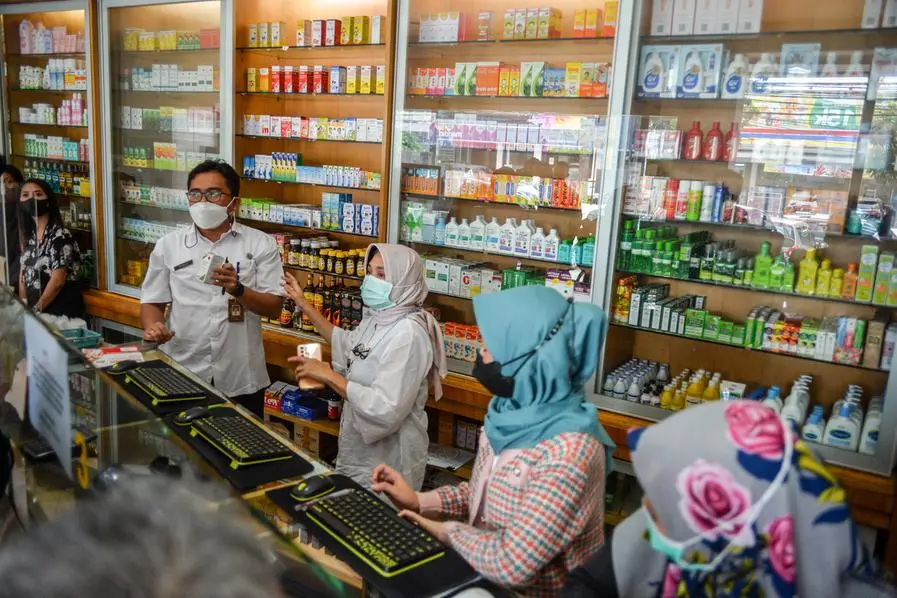PHOTO
JAKARTA - Indonesia's food and drug agency (BPOM) said on Monday it had revoked licenses of syrup-type drug production of two local firms for violating manufacturing rules, as it probes the deaths of more than 150 children due to acute kidney injury (AKI).
The decision comes after Indonesia temporarily banned sales of some syrup-based medications and identified the presence in some products of ethylene glycol and diethylene glycol as possible factors in the AKI deaths, most of which were of children under five.
The two are used in antifreeze and brake fluids and other industrial applications but also as a cheaper alternative in some pharmaceutical products to glycerine, a solvent or thickening agent in many cough syrups. They can be toxic and lead to acute kidney injury.
BPOM chief Penny K. Lukito told reporters "oral liquid" manufacturing licences of the two companies, PT Yarindo Farmatama and PT Universal Pharmaceutical Industries, has been revoked, adding BPOM are pursuing criminal action against them.
The two firms produced drugs with substandard raw materials, failed to report a change in ingredients and used some materials in excess of guidelines, Penny said.
PT Yarindo Farmatama did not immediately respond to Reuters' requests for comment. A lawyer with PT Universal Pharmaceutical Industries declined to comment, citing the ongoing investigation.
Indonesia has seen a surge in AKI cases among children since August, which its health minister said was most likely due to changes in the raw ingredients used in cough and fever syrups.
Indonesia imports its raw ingredients for medicine mostly from China and India, according to the health ministry.
Authorities said solvents used in the syrups from the two companies contained impurities.
BPOM said on Monday one of these solvents, propylene glycol, was made by Dow Chemical Thailand. The company did not immediately respond to a request for comment.
BPOM said it would look into distributors of the two drug makers to see if they supplied materials to other pharmaceutical firms.
Indonesia has been investigating AKI cases in consultation with the World Health Organization (WHO) following a similar incident in Gambia earlier this year, which has seen at least 70 deaths related to syrup medications made by India's Maiden Pharmaceuticals.
(Reporting by Stanley Widianto and Ananda Teresia; Additional reporting by Chayut Setboonsarng; Editing by Miyoung Kim)





















